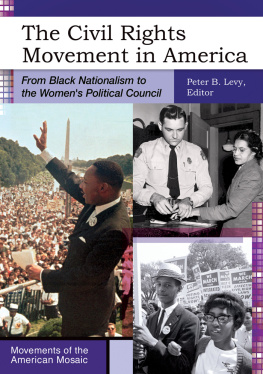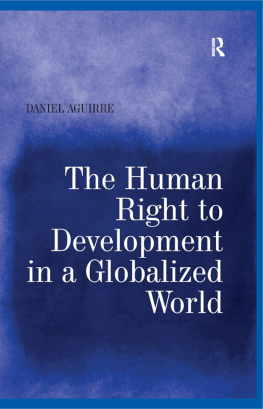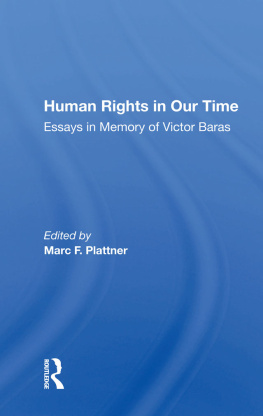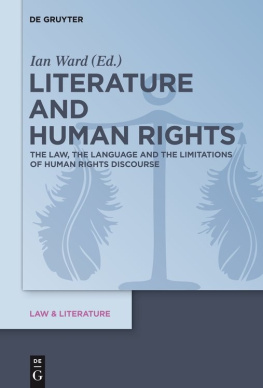Human Rights and Memory
ESSAYS ON HUMAN RIGHTS
Edited by Thomas Cushman
This series features important new works by leading figures in the interdisciplinary field of human rights. Books in the series present provocative and powerful statements, theories, or views on contemporary issues in human rights. The aim of the series is to provide short, accessible works that will present new and original thinking in crystalline form and in a language accessible to a wide range of scholars, policymakers, students, and general readers. The series will include works by anthropologists, sociologists, philosophers, political scientists, and those working in the more traditional fields of human rights, including practitioners.
Thomas Cushman is Professor of Sociology at Wellesley College. He previously edited a series for The Pennsylvania State University Press titled Post-Communist Cultural Studies, in which a dozen volumes appeared. He is the founding editor of two journals, Human Rights Review and the Journal of Human Rights, and he now serves as Editor-at-Large for the latter. He is a Fellow of the Yale Center for Cultural Sociology.
ALREADY PUBLISHED:
Bryan Turner, Vulnerability and Human Rights (2004)
Keith Tester, Humanitarianism and Modern Culture (2010)
John Rodden, Dialectics, Dogmas, and Dissent: Stories from East German Victims of Human Rights Abuse (2010)
Rhoda Howard-Hassmann, Can Globalization Promote Human Rights? (2010)
OTHER TITLES FORTHCOMING:
Nancy Tuana, Global Climate Change and Human Rights
Human Rights and Memory
Daniel Levy and Natan Sznaider
The Pennsylvania State University Press
University Park, Pennsylvania
Library of Congress
Cataloging-in-Publication Data
Levy, Daniel, 1962
Human rights and memory / Daniel Levy and Natan Sznaider.
p. cm.
(Essays on human rights)
Includes bibliographical references and index.
Summary: Examines the foundations of human rights, how their political and cultural validation in a global context is posing challenges to nation-state sovereignty, and how they become an integral part of international relations and are institutionalized into domestic legal and political practicesProvided by publisher.
ISBN 978-0-271-03738-7 (cloth : alk. paper)
1. Human rightsHistory.
2. Human rightsSocial aspects.
3. International relationsHistory.
I. Sznaider, Natan, 1954.
II. Title. JC571.L49 2010
323dc22 2010007051
Copyright 2010
The Pennsylvania State University
All rights reserved
Printed in the United States of America
Published by
The Pennsylvania State University Press,
University Park, PA 168021003
The Pennsylvania State University Press
is a member of the
Association of American University Presses.
It is the policy of The Pennsylvania State University Press to use acid-free paper. Publications on uncoated stock satisfy the minimum requirements of American National Standard for Information SciencesPermanence of Paper for Printed Library Material, ANSI Z 39.481992.
This book is printed on Natures Natural, which contains 50% post-consumer waste.
For Ella and Shira
CONTENTS
This book owes much to conversations with friends and colleagues. More than anything else it is the product of an ongoing exchange and research agenda that we started with Ulrich Beck in the late 1990s. Thus, the book is a constant intellectual engagement with his ideas and concepts. We have been drawing a great deal of inspiration from our conversations with him over the years.
We thank Tom Cushman for initiating this project and for his enthusiastic and sustained support throughout, which did not diminish his critical and incisive comments.
Thanks also to Sandy Thatcher and his staff at Penn State University Press. In addition, we thank Esther Singer for her editorial help. Thanks also to the anonymous reviewer for a close reading of an earlier draft and a very supportive endorsement.
Last but not least, we would like to thank our respective academic institutions, Stony Brook University in New York and the Academic College of Tel AvivYaffo in Israel for granting us research leaves.
This book also presents results of our joint research project (funded by the Deutsche Forschungsgemeinschaft). It is a continuation of our earlier work, The Holocaust and Memory in the Global Age (Temple University Press, 2005), in which we developed the concept of cosmopolitan memory. In the current book we expand upon a variety of themes that address the historical, political, and cultural connections between memory and human rights. We advanced some aspects of this link in an article entitled Sovereignty Transformed: A Sociology of Human Rights, British Journal of Sociology 57, no. 4 (2006): 65776. Our focus on Europe builds on our earlier essay Memories of Europe: Cosmopolitanism and Its Others, which appeared in Cosmopolitanism and Europe, ed. Chris Rumford (Liverpool: Liverpool University Press, 2007). The politics of forgiveness is an elaboration on ideas we first articulated in Forgive and Not Forget: Reconciliation Between Forgiveness and Resentment, in Taking Wrongs Seriously: Apologies and Reconciliation, ed. Elazar Barkan and Alexander Karn (Stanford: Stanford University Press, 2006).
Once we had a country and we thought it fair,
Look in the atlas and youll find it there:
We cannot go there now, my dear, we cannot go there now.
This excerpt from a poem by W. H. Auden, written shortly before the outbreak of World War II, is a poets outcry for a more humane world, for a world without cruelty. It is a poets wish that his words can make for a better world by displaying compassion for others. Today, this outcry is couched in the language of human rights, which seems to be everywhere. Human rights mean much to many, but also many different things. As a new universal language, they have been surprisingly underconceptualized. Are we talking politics? If so, what kind of political implications do human rights have? Or are we talking aesthetics, which implies a kind of human rights experience without a great many political consequences? This brings us full circle to the outcries of poets and intellectuals.
Nevertheless, there is agreement that human rights matter. Contemporary societies are suffused with images making just this point. Imagine yourself watching pictures on TV or on the Internet. They show brutal beatings, people being forcibly evicted from their homes, or soldiers assaulting innocent civilians parade before your eyes. This is no movie clip, but rather actual images from realities nearby or far away. What do we make of these pictures? Do we have a language that can make sense of them? All human beings are born free and equal in dignity and rights. They are endowed with reason and conscience and should act towards one another in a spirit of brotherhood. Thus states Article 1 of the Universal Declaration of Human Rights. These are noble words, but do they have political meaning, and, if so, what are their implications? Are they consequential?
The language of human rights provides us with a framework to begin to understand why pictures of strangers being beaten and tortured by other strangers concern us. Why do we care? Should we care? What is it about the power of human rights that makes us find these scenes revolting? Has this always been the case? If not, does this mean that our relation to human suffering, our passion for human rights, is not a given but is historically contingent? If so, what historical contingencies have made us more responsive to the sufferings of strangers? Human rights and allegiance to them is a rather recent phenomenon. Who can afford to be against human rights? At least rhetorically, human rights have become a kind of universal currency in politics. Clearly, this alone does not guarantee a world without violations. Even when viewed as simply a Western ideological move or just another sophisticated form of colonial imposition, human rights have turned into a global phenomenon that must be reckoned with. This book is an attempt to show how we reached this particular point in history.












